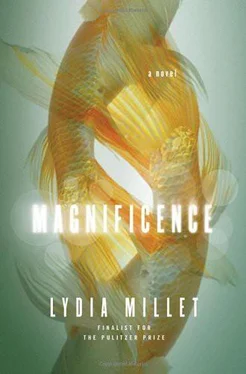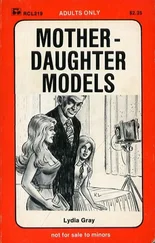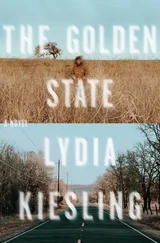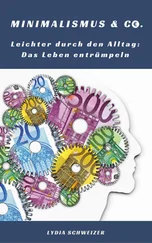Ho is a seasoned old professional revolutionary, has done time for agitation in French, Chinese and even Hongkong jails. He is amazingly pleasant and gives the impression of being a Chinese scholar type . .
Further down the letter writer described a person called the Emperor of Annam, who had also attended the party. The Emperor is a very sophisticated gent, about 40 or 43, and looks much like what you’d expect of a modern Rajah. He is said to be interested mainly in sports, chiefly hunting. There is wonderful shooting a couple of hundred miles from here. A hint, she thought, a clue, a piece, but then it went nowhere, for there was no further mention of hunting. She forgot what she was looking for, in the wine and on her empty stomach, and only wished that she was in that time, long gone, when there were those habits of politeness and a person might reasonably write much like what you’d expect of a modern Rajah .
Then she was finished with the bundle of letters and there was nothing left but money. In a water-damaged register she found electricity and gas bills, even milk bills from the days when you could have it delivered, but most of the entries were illegible. There were a few invoices from travel agencies, which might have led somewhere if there had been enough of them, but in the end they yielded nothing of interest and she threw them away. The old man must have had photo albums, at least a box of curling old snapshots, she thought next, and started to search the library. But the task was too daunting.
Still she was stubborn and for a while at least she had nothing better to do, so she drained the wine bottle and combed the dusty shelves, pulling out one oversized book after another, flipping them open, then sliding them back into place. She lost track of time. There were volumes on coats of arms, on the children’s crusades and the history of war, biographies of Napoleon and Douglas MacArthur. In a corner there was a small, primitive television and a pile of old movies: Lion of the Desert, Little Big Man, The Bridge on the River Kwai.
She would hire a cleaning woman, she decided, trudging upstairs at three in the morning with the dim old wall sconces lighting her way. People with big houses had cleaning women. Those people were not her, which she never forgot: rich people were not her. She looked at the sconces as she passed. Full of moths, hundreds of off-white moth bodies piled in the yellowing basins like pencil shavings. Were they a fire hazard? A cleaning woman could search the library. Or maybe a student could do it. With money, you could pay.
At the landing was an open window, its gauzy curtains blowing inward in the mild night breeze. Standing at windows had become a pastime. If she could, she would stand in the frame of an open window forever — the perfection of it. The peace. There you were, enclosed by the assurance of walls yet turned to the air. Stretching before you was the land, as though you were beginning it; the rest of being floated ahead, a movie in a darkened hall. Its possibilities touched the planes of your face, not too close, not too far, a scene of earth and sky that asked for nothing and forced nothing on you. There at the border and the rim, the real was also a mirage. The evening air cooled her cheeks and she felt exhilarated — her windfall house, a new life. The life of someone else.
Then the loneliness swelled, guilt pulsing at the base. She was a murderer.
She took a deep breath. Murderer, murderer.
She had to agree with herself. She had levied the accusation in the first place and now she had no choice but to acquiesce, accept graciously or she would never relax again, would always be defending herself against her own judgment. So yes: she was a murderer. Or worse, had done a negligent homicide. In an assassin at least there was purpose.
She felt her heart rate slow. Slow and steady. The fresh air cold on her skin. That was all right. She could be cold. She could be frigid. She held her arms out to receive the chill.
She was alone now. But on the other hand she was also a queen, the private, unseen monarch of a kingdom of dust and faded velvet and the great horns of beasts. She dwelled in a palace. So she had nothing and everything at once, had been struck down and raised up.
In one respect it was not surprising, because the world’s systems tended to elevate crime. Those systems knew about crime, those systems were forced to reward it. It would be wrong to say the world’s systems liked or encouraged crime; that would be superstition, as the world had no opinions. The world neither liked nor disliked criminal acts; it was amoral, not immoral. It had no agency but it did have structure, and because of its structure it tended to reward criminal acts. As long as the criminal was not too overt and her movements agile, bad actions typically brought profit.
Inside there might be suffering, but externally, for all to see, profit and gain arrived. It would be incorrect to say society, for it was not society alone that had brought first Hal’s death, then her windfall. Certainly society had created the big house. But other elements had also been required to bring her here — a molecular current was needed, a shifting too microscopic to attribute to people and their social compacts.
Broadly, the world could not say no to an act of selfishness. Selfishness burned at its core.
Above the core there was the good soil, the dirt of continents, the water of seas, the winds of the atmosphere. Moon and stars, firmament: the ocean and the sky. This second part of her life was two kinds of freedom and two kinds of blackness. The future yawned over her, the heavens were endless. They were an observatory. Was that what plenty gave you? Everything was offered, nothing was necessary. She was less bound, standing there at the window by night. She had sails, she had wings, she had the lift of low gravity.
She also had the shudder of regret, a sadness that clung forever. She was the sliver of rot in the wood.
Airborne, though, maybe she could stand it. Before her the indigo sky of predawn, the black lacework of sheltering trees. She and Hal had never been poor. They’d always had enough income to qualify as middle-class, at least until it came to Casey’s medical bills. But this life was something else by an order of magnitude — a state of exuberance, a lazy abundance that bristled with energy.

One morning she stood at the bedroom window half-naked while Ramon was working alone in the backyard, and then, when he looked up, she smiled.
That was all you needed, typically. He was young, shy and deferential, and you had to be obvious with men: she had learned that early. To get what you wanted without undue worry, obvious was the key. Men would take anything that was offered, as a general rule. Most were so surprised they never contemplated refusal. That was the advantage of other women’s submission. In a society of aggressive or even merely confident women, she would be overlooked; but since most of them were passive, and most men were lazy, the field was wide open.
She led him into the Himalayas on impulse because the bed in there had new sheets — the only sheets in the house that didn’t smell of mold. She had made the bed for herself before she chose horned beasts and not yet bothered to switch the linens, preferring to sleep in dust and oldness every night, half out of apathy. And he was clean, cleaner than average, she felt, and smelled slightly of aftershave or soap — eucalyptus, maybe — which she found she didn’t mind. He gave an impression of instinctive knowledge: something about the fullness of skin, a generosity that made the context fade.
Читать дальше













